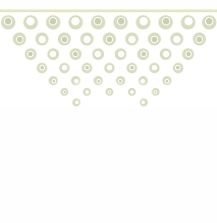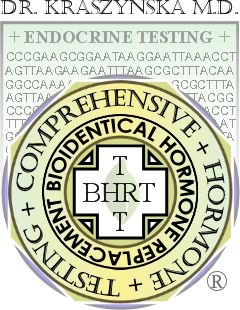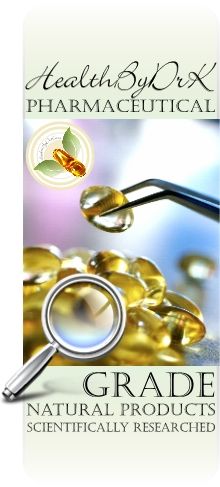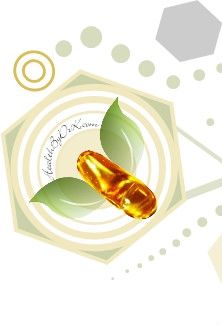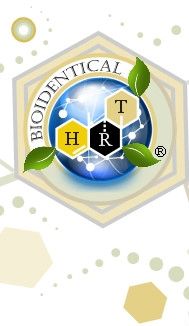MyBioidenticalHormones.com
Balancing hormones...
to regain...
a paramount quality of life™
1-847-253-0557
The hormone testosterone plays a vital role in maintaining
a man's health and wellbeing. Hormone replacement
therapy helps balance normal testosterone levels in men.
Testosterone replacement therapy offers a natural solution.
The hormone testosterone is described as being a potent androgenic hormone found in larger concentrations in the body of an adult man then that of a woman. However, if a man has hormonal imbalances then this may not be the case and his testosterone levels can be abnormally low. Testosterone is classified as a male hormone and is produced by the testes in a man's body. It is responsible for the proper development of male sexual characteristics that include deepening of the voice, growth of facial hair, increased muscle mass and strength as well as an increase in height. Testosterone levels in men are usually 30 percent higher in the morning then at night.
 Production and androgenic effects of testosterone
Production and androgenic effects of testosterone
Leydig cells in the testes are the special cells that produce the hormone testosterone. Testosterone levels usually increase significantly during puberty. Testosterone secretion is stimulated by the pituitary hormone: Luteinizing hormone (LH). Testosterone is also a steroid hormone. Cholesterol is a building block for steroid hormones including testosterone; therefore it is advisable for young men to maintain adequate cholesterol levels. Testosterone is required for normal spermatogenesis (a process through which spermatogonia become mature spermatozoa, also called sperm cells). Sertoli cells of the testes produce sperm stimulated by follicle stimulating hormone (FSH) released by the pituitary gland.
When released from the testes, testosterone is delivered to its target tissues through the blood. In the blood, testosterone is carried by a protein called sex hormone binding globulin (SHBG), which binds the sex hormones testosterone and estradiol.
Testosterone is referred to as an anabolic steroid hormone. Testosterone supports protein synthesis and the building of body tissues including muscles and bones. Testosterone promotes the growth of many body organs and organ systems. Under the influence of testosterone men usually grow larger in body size then women. Testosterone is responsible for making men's hearts and brains bigger in size then that of women. Testosterone in men is responsible for the development of a man's sexual characteristics. This type of effect of testosterone on the body is referred to as an androgenic effect.

Testosterone and aggressive behavior
Men who have normal, optimal testosterone levels usually do not have behavioral problems. Aggressive behavior in men was observed in individuals who were in a hypogonadal state (had very low testosterone, low T, also referred to as hypogonadism) or with excessive testosterone levels. When testosterone levels were normalized through testosterone replacement therapy, behavioral problems in these individuals subsided. Also, a testosterone imbalance of either too low or too high testosterone levels can lead to mood disorders such as depression as well as anxiety and an increased risk for development of Alzheimer's disease.
 The most important roles of testosterone in a man's body are:
The most important roles of testosterone in a man's body are:
Development of male sexual characteristics
Anabolic (body building) function
Sexual function, libido and erectile function
Testosterone plays an important part in maintaining a man's health and well-being.
Other vital health roles of testosterone in men include:
-
Testosterone develops and maintains reproductive health.
-
The hormone testosterone builds and sustains the integrity of the musculoskeletal system.
-
Testosterone improves bone density and muscle strength.
-
Testosterone protects the cardiovascular system by balancing lipids and cholesterol levels.
-
The hormone testosterone supports proper brain function including memory and mood.
-
Testosterone protects men against obesity and diabetes.

Effects and benefits of testosterone on cardiovascular health
Low testosterone levels in men have been associated with decreased cardiac function. Men who have low testosterone levels have higher incidence of hypertension, heart attacks atherosclerosis, increase blood clotting factors and strokes. Testosterone improves myocardial function in patients with congestive heart failure. In addition, low testosterone levels are associated with elevated cholesterol levels and triglycerides (high level of LDL cholesterol and low level of HDL cholesterol). Testosterone possesses anti-inflammatory properties and can normalize arterial wall function.
 Benefits of testosterone on the brain, testosterone brain function
Benefits of testosterone on the brain, testosterone brain function
Testosterone is important for healthy brain development, proper cognitive function and memory. Healthy levels of the hormone testosterone have been known to protect against Alzheimer's disease. Testosterone exerts anti-depressant effects on the brain and stabilizes mood. Men who undergo testosterone suppression for prostate cancer show signs of memory decline and moods swings. Testosterone replacement therapy is recommended for men who have hormonal imbalances such as a testosterone insufficiency that impair healthy brain function.

Normal optimal testosterone levels increase longevity in men
A study of
Normal testosterone production decreases with age.

